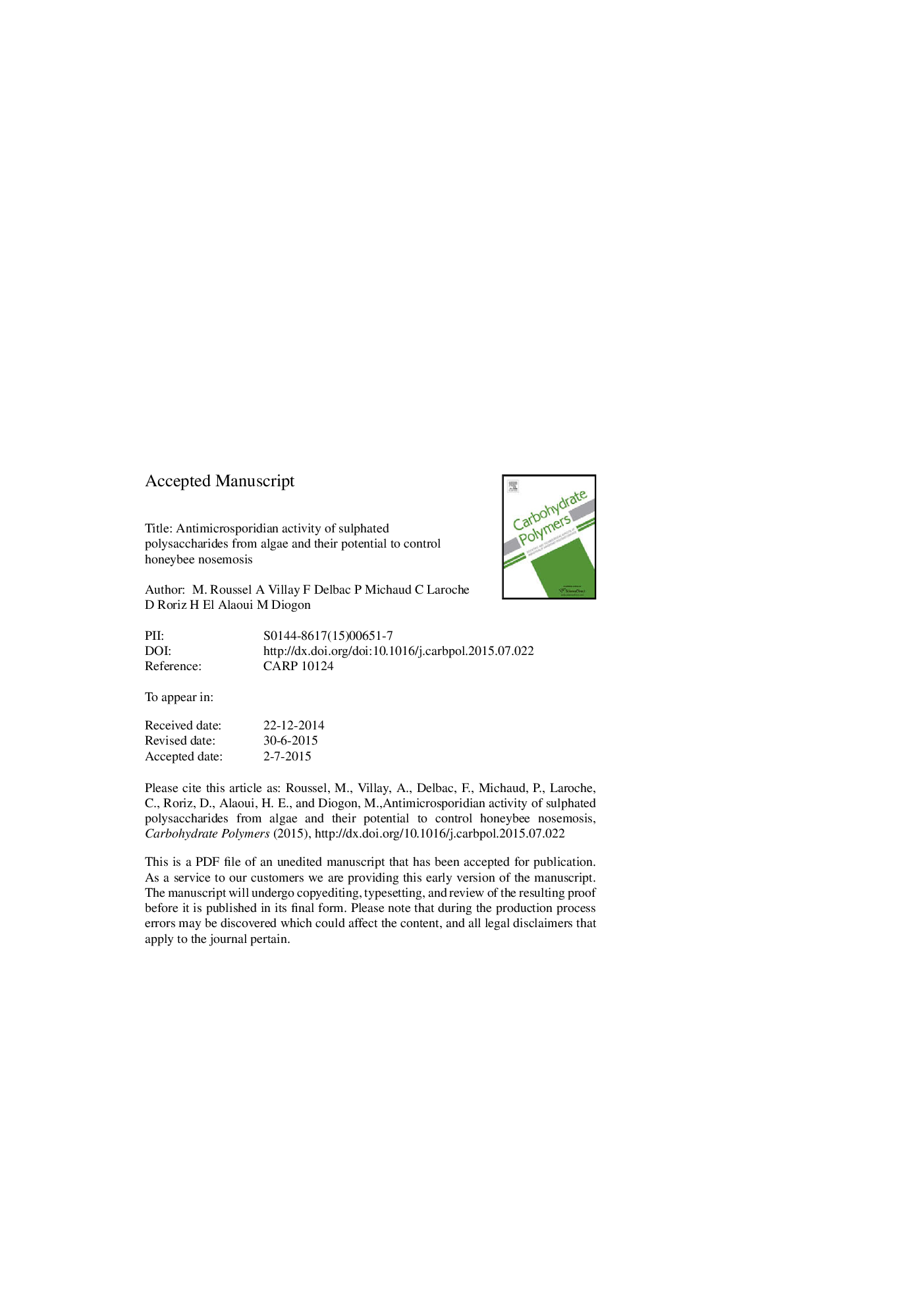| Article ID | Journal | Published Year | Pages | File Type |
|---|---|---|---|---|
| 7787481 | Carbohydrate Polymers | 2015 | 31 Pages |
Abstract
Nosemosis is one of the most common and widespread diseases of adult honeybees. The causative agents, Nosema apis and Nosema ceranae, belong to microsporidia some obligate intracellular eukaryotic parasites. In this study, 10 sulphated polysaccharides from algae were evaluated for their antimicrosporidian activity. They were first shown to inhibit the in vitro growth of the mammal microsporidian model, Encephalitozoon cuniculi. The most efficient polysaccharides were then tested for their ability to inhibit the growth of Nosema ceranae in experimentally-infected adult honeybees. Two polysaccharides extracted from Porphyridium spp. did not show any toxicity in honeybees and one of them allowed a decrease of both parasite load and mortality rate due to N. ceranae infection. A decrease in parasite abundance but not in mortality rate was also observed with an iota carrageenan. Our results are promising and suggest that algal sulphated polysaccharides could be used to prevent and/or control bee nosemosis.
Related Topics
Physical Sciences and Engineering
Chemistry
Organic Chemistry
Authors
M. Roussel, A. Villay, F. Delbac, P. Michaud, C. Laroche, D. Roriz, H. El Alaoui, M. Diogon,
